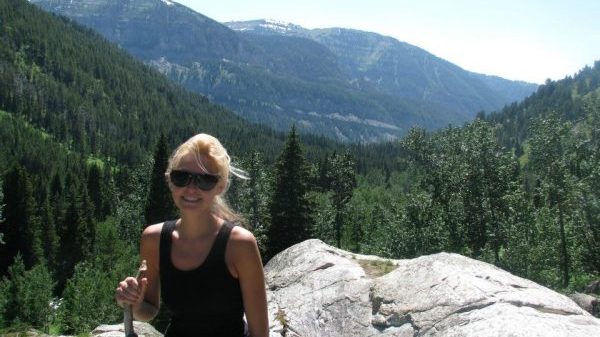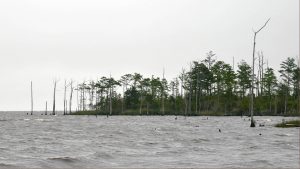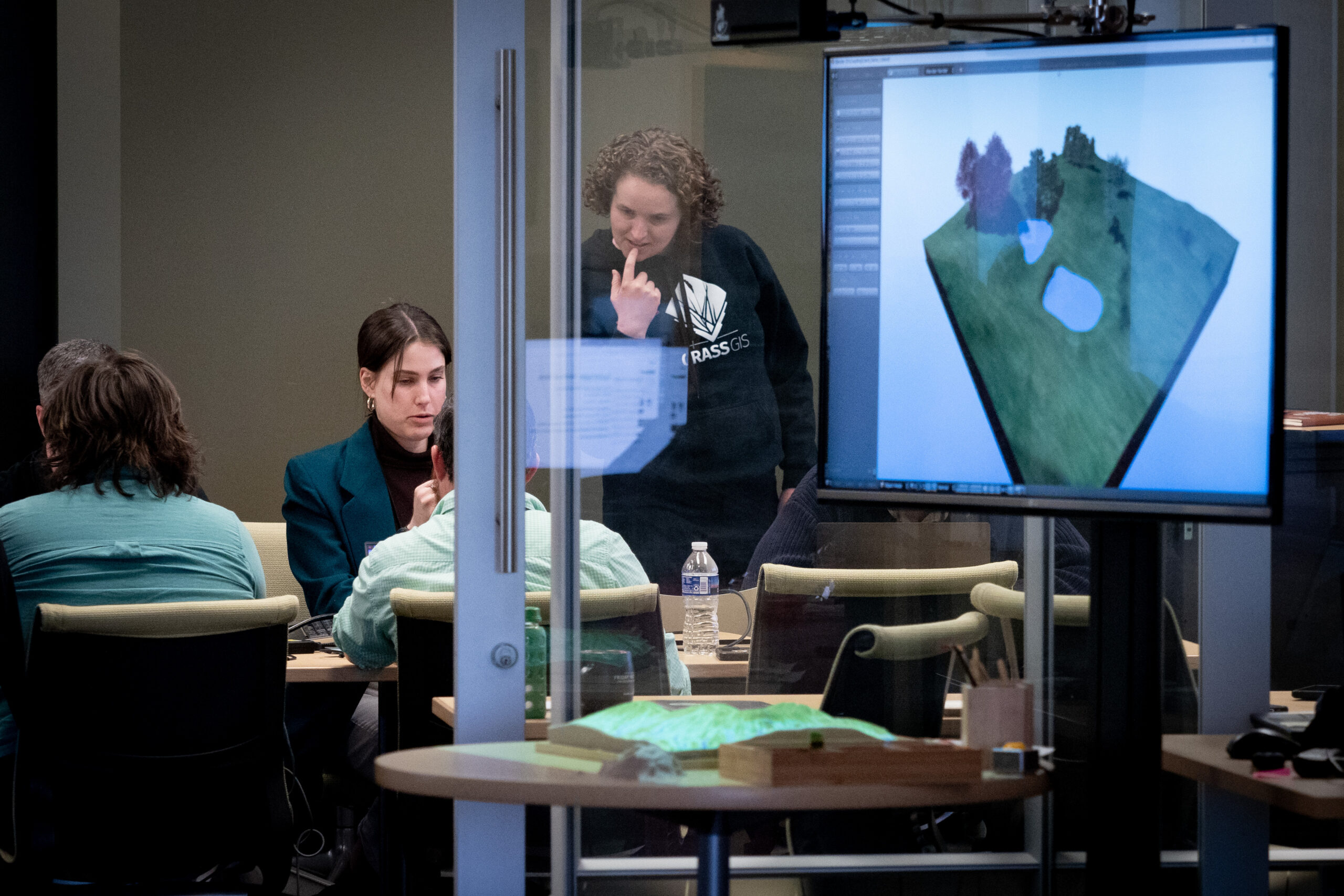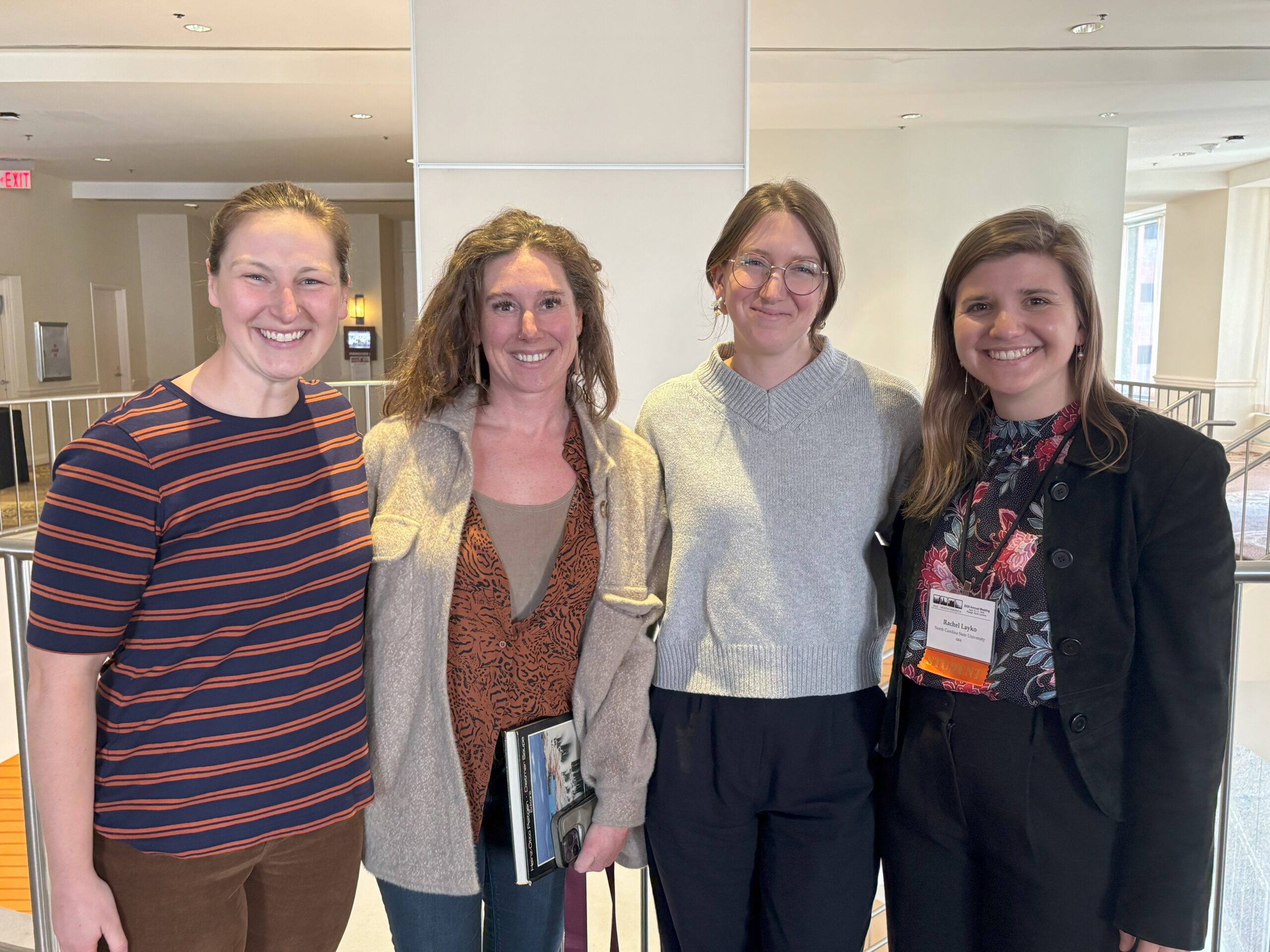Ph.D. Student Lindsey Smart Awarded $10,000 Fellowship to Study “Ghost Forests”

Center Ph.D. student Lindsey Smart has been awarded a $10,000 fellowship from NC Sea Grant / NC Space Grant to study the connection between rising sea levels and vegetation die-off along the North Carolina coast. Her research concerns the emergence of so-called “ghost forests” on the coastal plain, where dying trees are a striking indicator of changing soil chemistry as sea levels rise.
Part of an interdisciplinary team called SALT (Salinization, Adaptive Capacity Building for Land Use and Tourism Development), Lindsey and other researchers from NC State’s College of Natural Resources have been studying the problem of “saltwater intrusion” from multiple angles, seeking to understand exactly what happens when encroaching saltwater mixes with fresh groundwater and increases the salinity of soil.
During her fellowship, Lindsey will show just how much vegetation has been lost over the past decade in the sensitive environments of the Albemarle-Pamlico peninsula and whether that loss is related to changing salt levels. Maps that Lindsey produces during her work will also point out where exactly across the landscape plants are dying, highlighting the areas that will be of most concern to local landowners. These high-quality maps will be based on sophisticated models that Lindsey is developing using a variety of data. Her approach is particularly unique, as she combines fieldwork on the ground with large datasets collected from the air, and both types of information span multiple years. At individual plots, vegetation measurements go hand-in-hand with soil samples. Data from these plots will then be used to interpret LiDAR (Light Detection and Ranging) survey data, gathered statewide in 2003 and 2014 by plane as part of the North Carolina Floodplain Mapping Program.

When the research is complete, Lindsey intends to meet with local landowners during workshops on the coastal plain, showcasing the model she developed and highlighting which private lands she finds are most vulnerable to plant die-off from saltwater intrusion. Ultimately, “the research will serve as a decision-support tool,” Lindsey says, helping to guide discussions about adaptation strategies that landowners can adopt in the Albemarle-Pamlico region and in similar coastal areas.
Lindsey is co-advised by Ross Meentemeyer, director of the Center for Geospatial Analytics, and Jordan Smith, currently at Utah State University. Congratulations to Lindsey on her award and excellent research proposal!
For more information about the NC Sea Grant / NC Space Grant Fellowship, visit ncspacegrant.org.
- Categories:


